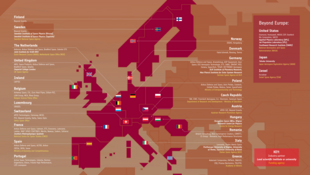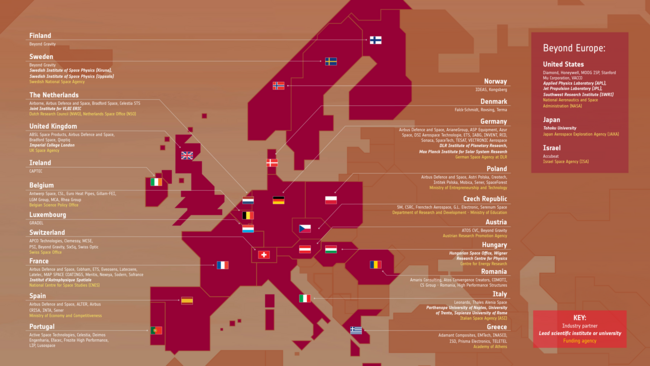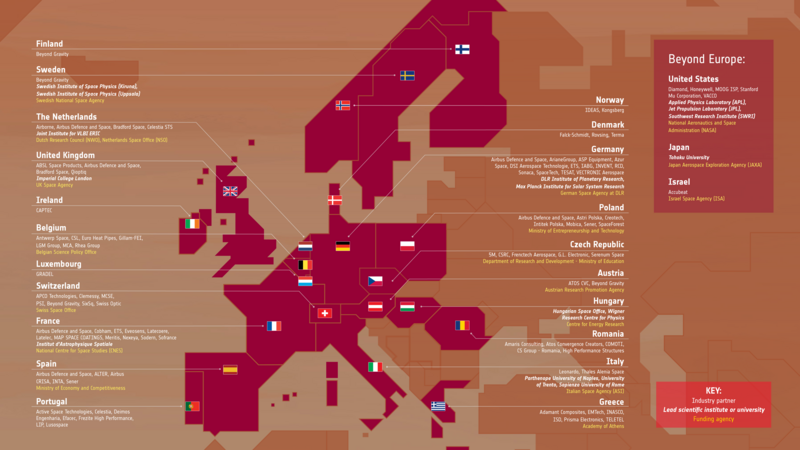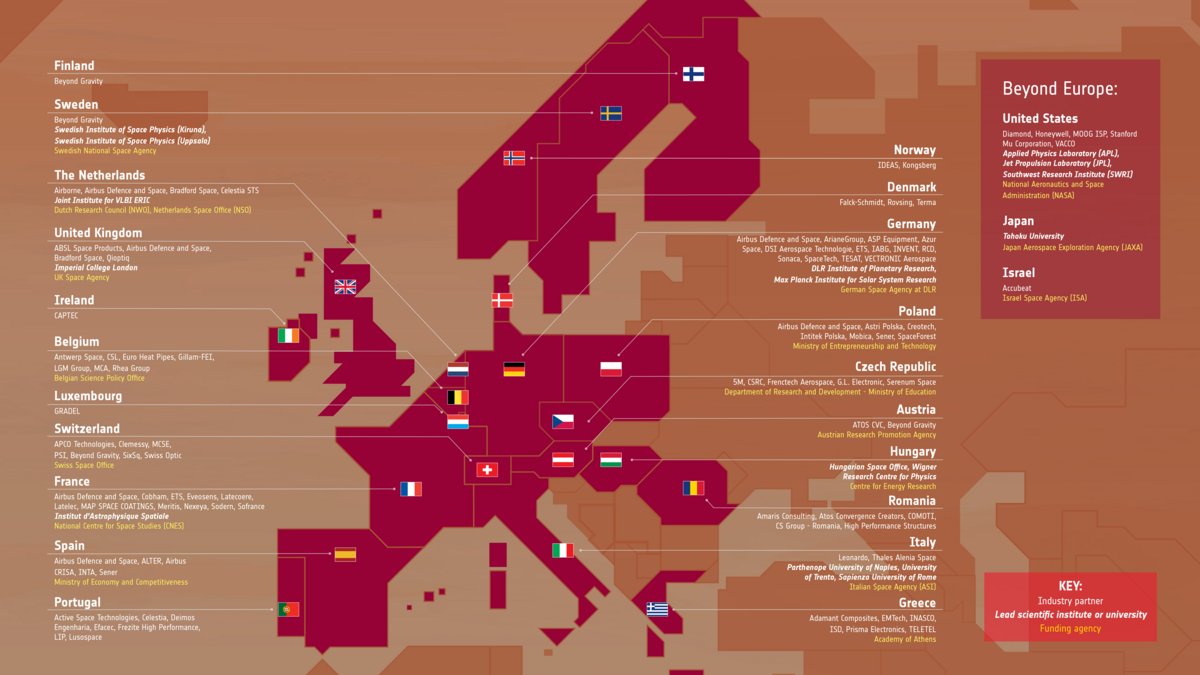



JUICE (image ESA)
Jupiter Icy Moons Explorer
The mission
Launch, scheduled for 13 April, will open an eight-year voyage to Jupiter. Juice’s mission is to study Jupiter’s large, ocean-bearing icy moons. The objectives include learning how such worlds might harbour life and exploring the Jupiter system as a model for complex environments around gas-giant planets across the Universe.
Jupiter is more than five times farther from the Sun than our Earth, so getting there is a significant challenge. After launch, a series of gravity-assist flybys of Earth and Venus will give Juice the speed and direction it needs to fly beyond the asteroid belt and reach the most giant planet in our Solar System.
Following its arrival at Jupiter in 2031, Juice will be guided through another 35 flybys of the gas giant’s moons to explore its principal objectives: Callisto, Europa and Ganymede. The mission will conclude with a comprehensive study of Ganymede – in 2034, it will become the first spacecraft to orbit a moon other than Earth’s.
Coordinated procurement of electronic components
ALTER was responsible of the engineering, testing, technologies validation and coordinated procurement of the electronic components for 80 users, 10 instruments, 5000 lots, 80 screenings, 160 DPAs, 70 radiations (TID, DD & SEE), and 120 NCRs.
| Juice's instruments | |
| JANUS An optical camera system | UVS UV imaging Spectrograph |
| MAJIS Moons and Jupiter Imaging Spectrometer | SWI Sub-millimeter Wave Instrument |
| GALA GAnymede Laser Altimeter | RIME Radar for Icy Moons Exploration |
| J-MAG A magnetometer instrument for Juice | PEP Particle Environment Package |
| RPWI Radio & Plasma Wave Investigation | 3GM Gravity & Geophysics of Jupiter and Galilean Moons |
Joint participation of ALTER UK and SPAIN in the Monitoring Cameras
Juice Monitoring Cameras are important instruments to monitor the status of JUICE and to take wide-angle images of the Jovian system. The hart of the camera is the rad-hard HAS2 image sensor which was packaged by ALTER UK, screened and qualified by ALTER SPAIN. It showed excellent performance for the JUICE mission (see our paper under the link https://doi.org/10.1117/12.2599949). The cameras were assembled by MCSE at ALTER clean rooms and then they were qualified by ALTER team.
Juice: an international endeavour
Juice has been developed and built with contributions from many ESA Member States. This map highlights industry partners and the lead scientific institutes or universities that have contributed. Participating countries outside of Europe are also indicated.



